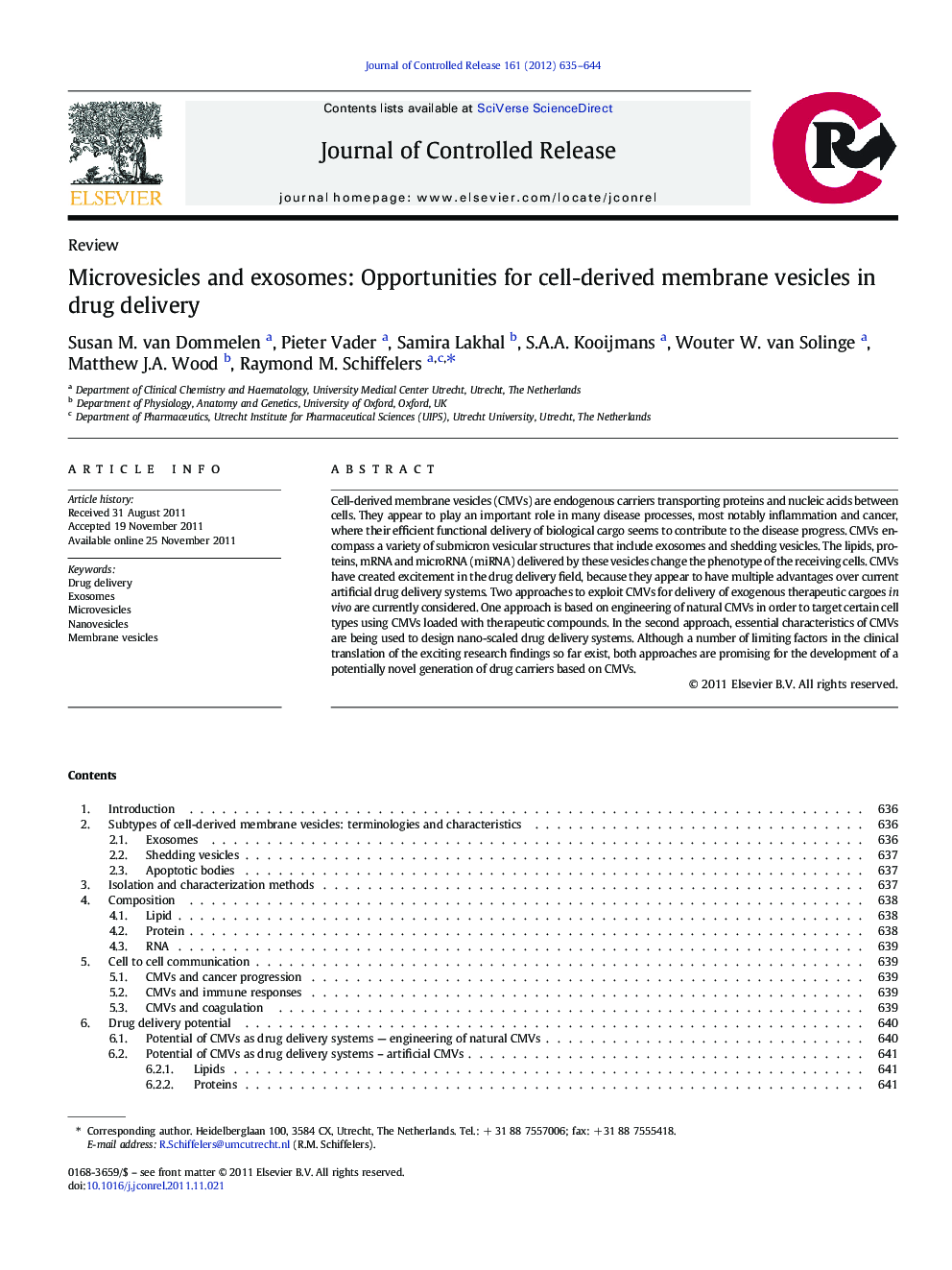| Article ID | Journal | Published Year | Pages | File Type |
|---|---|---|---|---|
| 1424438 | Journal of Controlled Release | 2012 | 10 Pages |
Cell-derived membrane vesicles (CMVs) are endogenous carriers transporting proteins and nucleic acids between cells. They appear to play an important role in many disease processes, most notably inflammation and cancer, where their efficient functional delivery of biological cargo seems to contribute to the disease progress. CMVs encompass a variety of submicron vesicular structures that include exosomes and shedding vesicles. The lipids, proteins, mRNA and microRNA (miRNA) delivered by these vesicles change the phenotype of the receiving cells. CMVs have created excitement in the drug delivery field, because they appear to have multiple advantages over current artificial drug delivery systems. Two approaches to exploit CMVs for delivery of exogenous therapeutic cargoes in vivo are currently considered. One approach is based on engineering of natural CMVs in order to target certain cell types using CMVs loaded with therapeutic compounds. In the second approach, essential characteristics of CMVs are being used to design nano-scaled drug delivery systems. Although a number of limiting factors in the clinical translation of the exciting research findings so far exist, both approaches are promising for the development of a potentially novel generation of drug carriers based on CMVs.
Graphical abstractFigure optionsDownload full-size imageDownload high-quality image (684 K)Download as PowerPoint slide
